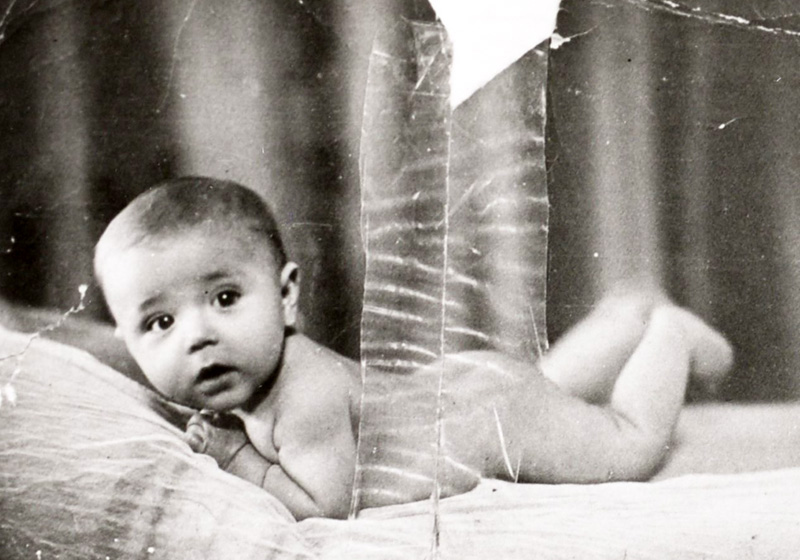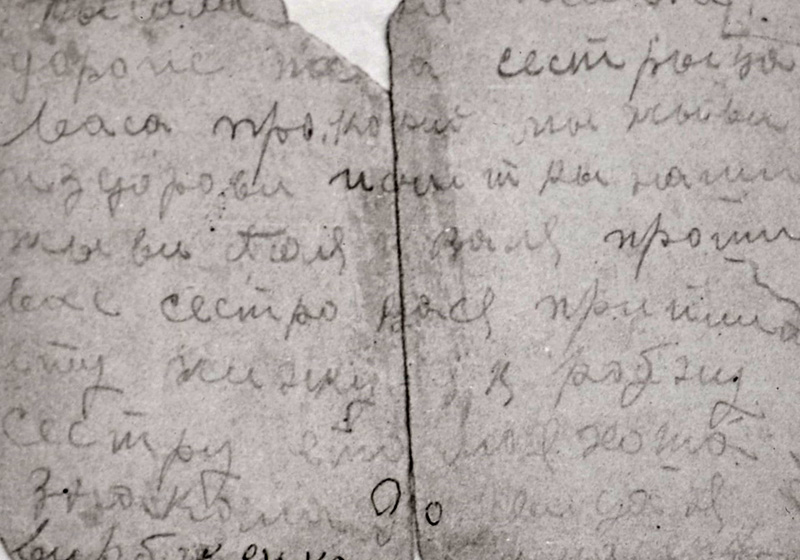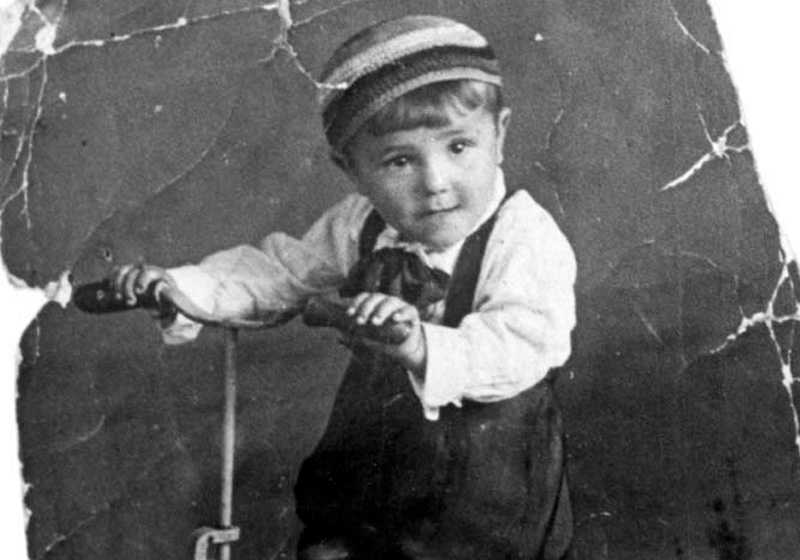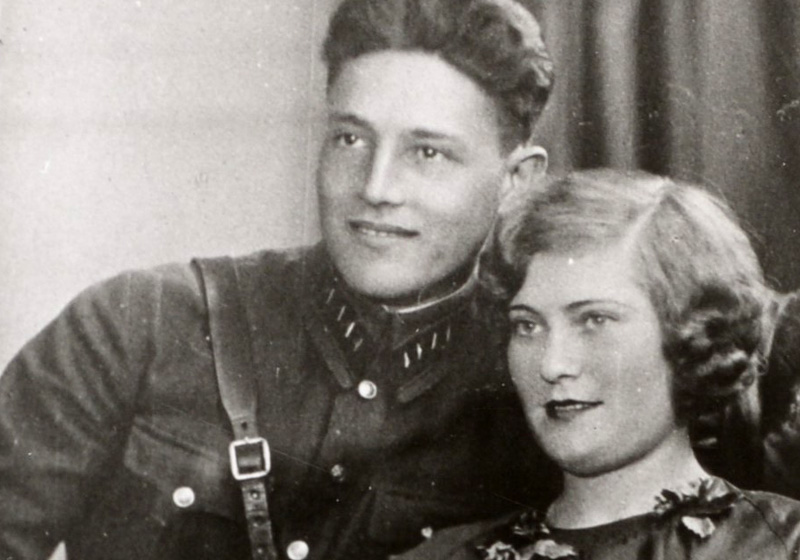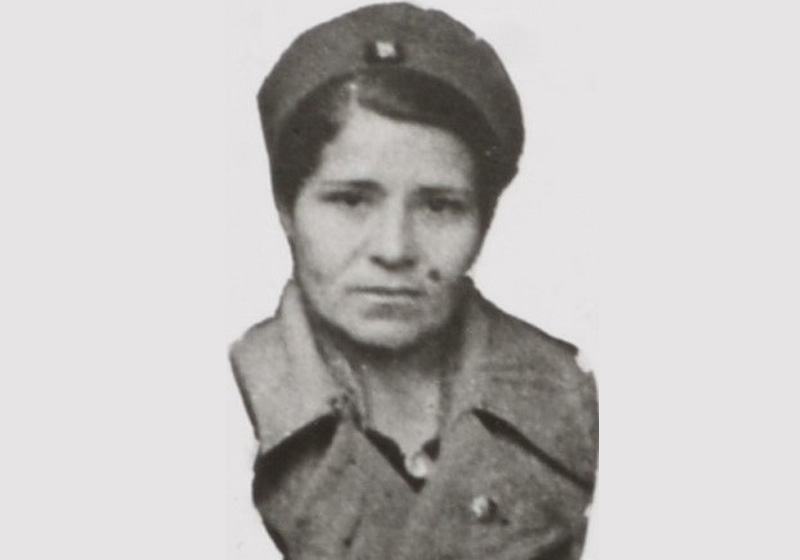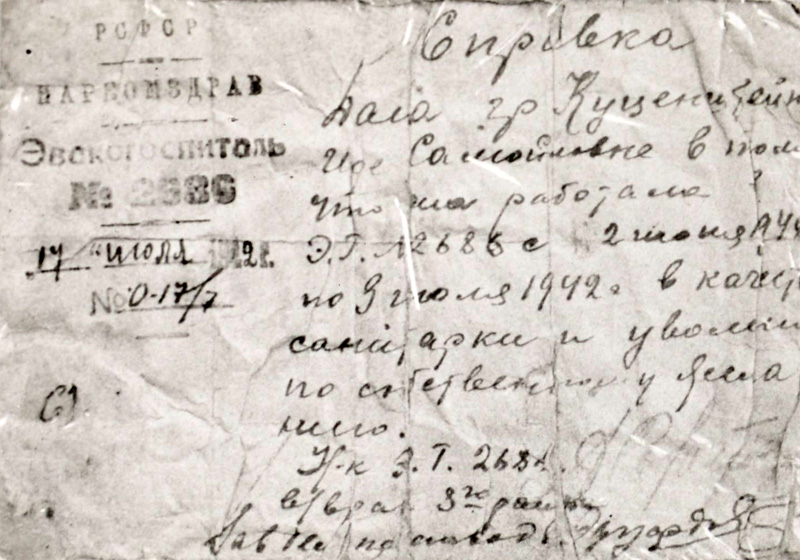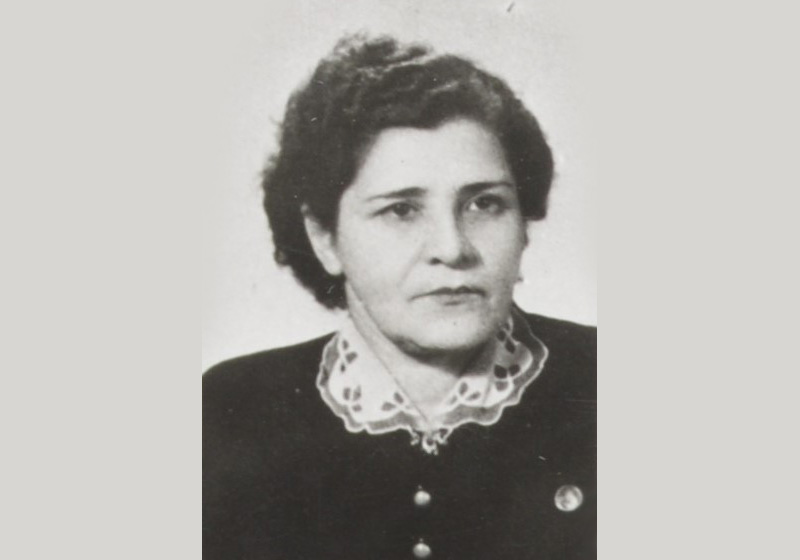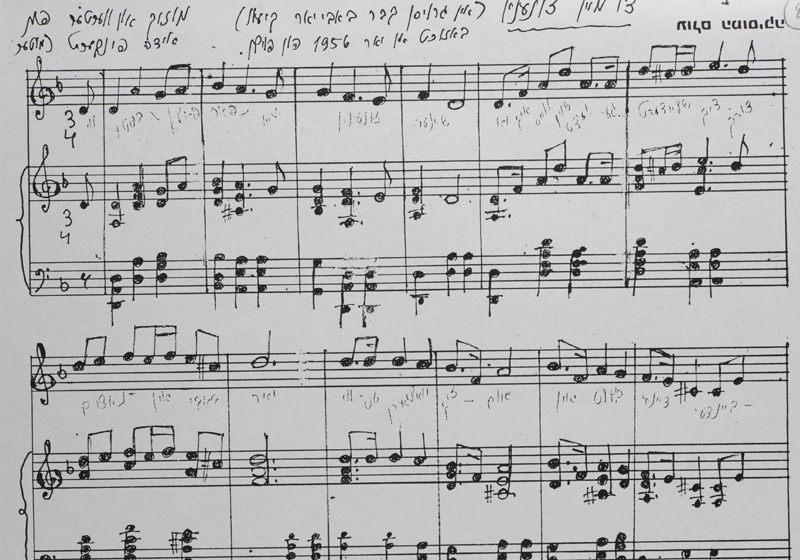"Remember Your New Name "
Surviving the Holocaust under a False Identity
Ida Krayz (Pinkert) survived in the ranks of the partisans in Ukraine using a false identity
Ida Kucensztejn was born in 1914 in the city of Otaci in the Russian Empire (later part of Romania and today Moldova), to Samoil and Miriam née Brunsztejn. Samoil made a living as a log merchant. They had six children: Lea-Liza, Ronia, Ida, Jakob-Jasza, Szmul and Menicha-Mania. When Ida was two years old, the family moved to Kamenetz-Podolsk. Samoil and two of the children, Lea and Szmul, passed away before the war.
Ida studied music at the conservatory in Kamenetz-Podolsk, and history at the University of Kiev. In 1934, she married Jefim-Efraim Izrajlowicz Krayz, and their son Welwele-Walentin was born about a year later. They lived in Kiev with Ida's mother Miriam. Ida worked as an educator and pedagogic counsellor, and on the eve of World War II, she was the director of an orphanage in Kiev.
The Germans invaded the Soviet Union in June 1941. Jefim was recruited to the Red Army and sent to the front. On the orders of the Education Ministry, the orphanage where Ida worked was evacuated deeper into the Soviet Union. Ida was also expected to evacuate, and she left Kiev on 17-18 September, one day before the Germans occupied the city. Welwele and Miriam stayed in Kiev. Ida did not succeed in getting far enough away from Kiev, and found herself caught in the crossfire. Surrounded by Germans, Ida decided to return to Kiev to rescue her son and mother, and took on the name Lidia Wladimirowna Tyszczenko.
On 29 September, on her way back to Kiev, Ida encountered two of her pupils. They told her that they had escaped from the city, and urged her to do the same. Reaching Kiev on 1 October, Ida was greeted by numerous notices ordering the Jews to report to the collection point on 29 September, equipped with warm clothes and in the possession of their valuables. Ida reached her home, and searched for her son and mother. Neighbors avoided her, but eventually, one of them gave her the devastating tidings: "Ida Samoilowna [daughter of Samoil], the Germans took your mother and son to Babi Yar! You know, two thousand children were buried alive at Babi Yar. The earth has been moving above those little ones for three days!" Ida fainted. She refused to eat or drink for three days, and only left Kiev after another neighbor threatened to turn her over to the Germans.
Ida wandered between villages and towns under her assumed Ukrainian identity. She was in perpetual danger of being found out and handed over to the Germans. Once she posed as a doctor, another time as a seamstress. "My bedding was the field and the forest," she related in her testimony, "And my sustenance consisted of sorrow and lice." On one occasion she was caught and sent to the POW camp in Magieja. There she received a document testifying to her status as a POW by the name of Lidia Wladimirowna Tyszczenko. Assisted by Russian partisans, Ida managed to escape from the camp. "It was preferable to join the partisans," she recalled, "I did not intend to relinquish my life so easily."
Ida continued on her wanderings, with her dubious credentials and wearing a cross around her neck. She also memorized Christian prayers. "I did everything I could so that they would not suspect me of being Jewish, but psychologically, I was depressed." She became an active member of the partisans. In May 1942, she crossed enemy lines and reached the Soviet Union. The group of partisans she was crossing with numbered 50, only three of whom were women. The three women and 18 of the men managed to cross the border. The others were killed en route. Ida was taken to Kursk, where she worked in a military hospital.
After the war, Ida discovered that her husband Jefim had fallen on the battlefield in the first days of fighting in the Kiev area. Her brother Yakob-Jasza was killed at the Leningrad front in 1941. Her two sisters survived. In 1945, Ida moved to Poland, and in 1946, she married Avraham Pinkert, a Yiddish theater actor and director. Avraham and Ida had two children, and they immigrated to Israel in 1957.
Ida was writing Yiddish poetry as early as her partisan days, some of which she also set to music. She wrote "Zwishen Partizaner Kampfer" (Between Partisan Fighters) in 1941, when she joined the partisans, and "Mein Umfargessleche Mamenio" (My Unforgettable Mother) in 1946, in memory of her mother, who was murdered at Babi Yar. She penned the poem "Babi Yar" in 1978.
Ida gave her testimony to Yad Vashem in 1960. Her testimony and poetry can be found in the Yad Vashem Archives.
In 2010, Ida's niece, Fania Krochmal, the daughter of Yakob Kucensztejn, submitted Pages of Testimony to Yad Vashem in memory of her cousin Welwele, her grandmother Miriam and other relatives.

